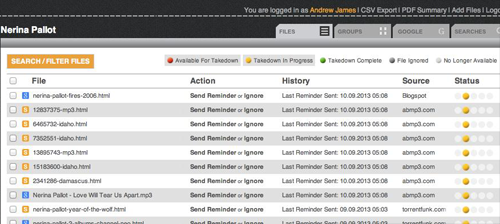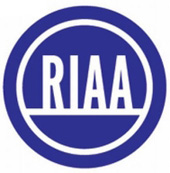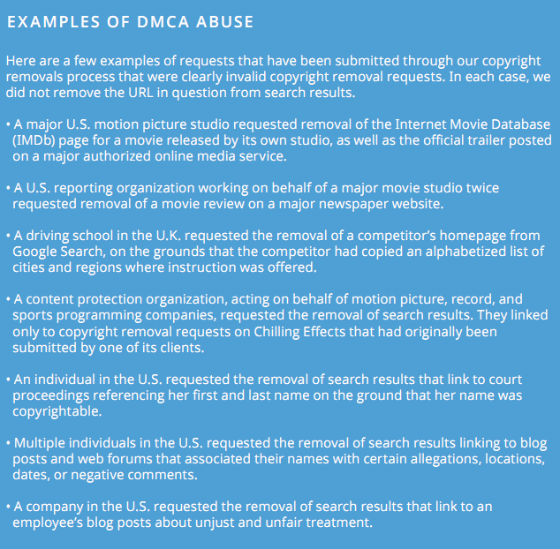Browser Plugin Reports Torrent Links to Anti-Piracy Company
jeudi 12 septembre 2013 à 22:27 It’s well known that many anti-piracy companies rely on their own web crawlers and even Google to find infringing links and files. Once detected they go about their business of sending DMCA notices to search engines, torrent and file-hosting sites, blogs and forums, in order to have that content taken down.
It’s well known that many anti-piracy companies rely on their own web crawlers and even Google to find infringing links and files. Once detected they go about their business of sending DMCA notices to search engines, torrent and file-hosting sites, blogs and forums, in order to have that content taken down.
In addition to the above techniques, anti-piracy company MUSO report they have developed a new method of gathering information on potentially infringing links and files.
The London-based outfit says that its new web browser plugin will enable any Internet user to report back the location of ‘pirate’ links or torrents whenever they appear in their web browser. The plugin will report how many files/links it has found before submitting them to the MUSO database.
“Cyberlocker, and similar download sites, do not generally allow direct searching so links are found through search engines, forums and blog sites that link back to the cyberlocker,” the company said in a statement. “MUSO’s ‘Anti-Piracy Assist Browser Plugin’ will use people power to help them protect their vast base of rights holders.”
We were interested to hear more details about this new product, such as how it will be able to differentiate ‘pirate’ files from those being distributed legitimately.

“The links found will feed into the MUSO system which already has robust systems in place for correctly matching only illegal content links to our client’s products,” MUSO Technical Director James Mason told TorrentFreak. “[We employ] a combination of automated matching algorithms, followed by a final human verification stage before any takedowns are issued.”
MUSO hopes that industry workers will install and use the plugin in a show of support for the music business although at this stage it appears that it will be open for anyone to use.
Of course, sending potentially infringing links could have legal implications so we quizzed MUSO on the privacy issues. Can users of the plugin be identified by the reports they send to MUSO and if not, will all users’ submissions be trusted as accurate?
“It’s fully anonymous and users won’t be identified in any way,” Mason told us.
“The links supplied don’t need to be trusted in any way, as it’s merely a way to make the MUSO system aware of a link. You can think of it as an extension to our existing crawler, rather than a user giving MUSO information about specific links belonging to specific products. Once the plugin or our existing crawler finds links, they are entered into our matching and verification process.”
No date has been set for the tool’s release but already it has piqued the interest of a developer in the file-sharing community. He told us that a people-powered link finding plugin with a few modifications might be useful to more people than just an anti-piracy company.
The tool will initially be available for Chrome with IE and Firefox support following “in the near future.”
Source: Browser Plugin Reports Torrent Links to Anti-Piracy Company
 Despite a plethora of legal options millions of people still download MP3s from unofficial sources. These sites are a thorn in the side of the RIAA, who represent the largest music labels in the world.
Despite a plethora of legal options millions of people still download MP3s from unofficial sources. These sites are a thorn in the side of the RIAA, who represent the largest music labels in the world. 



